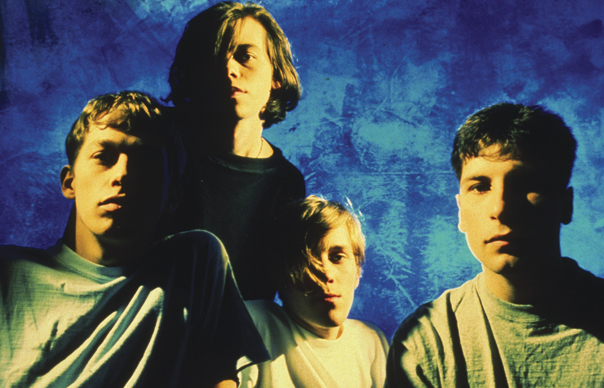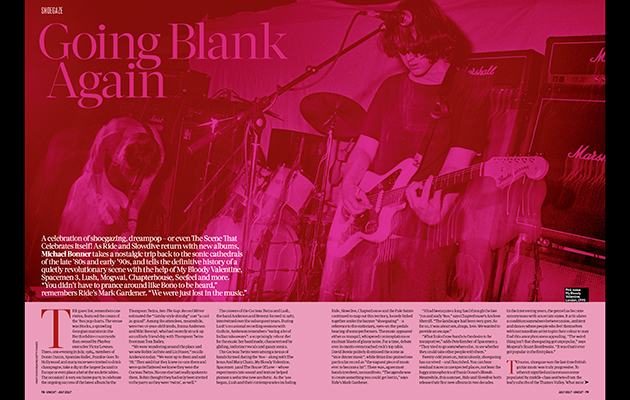My Bloody Valentine are reportedly returning to active service, Ride are about to start a new run of UK shows... Seems like a good opportunity to post my piece on the history of shoegazing that originally ran in the July 2017 edition of Uncut. Follow me on Twitter @MichaelBonner ________ The gu...
This kind of clear-cut enthusiasm was evident at gigs, but it was also transmitted to wider audiences through the pages of fanzines like Ablaze! Sowing Seeds, Woosh and Alphabet Soup – the latter edited by Emma Anderson and Miki Berenyi. By 1987, Anderson and Berenyi had formed Lush. For their third gig, in June 1988, they played on a bill alongside My Bloody Valentine at the Fulham Greyhound. Lush epitomized the new wave of bands influenced by the Valentines but also the lightly-psychedelicised post-punk bands like the Cocteau Twins, Siouxsie And The Banshees and Echo & The Bunnymen.
“I was a massive 4AD fan from the age of 15,” says Anderson. “The artwork, the aesthetic. I’d go to Record And Tape Exchange and buy records by band I’d never heard because they were on 4AD. It’s a very cynical way of looking at it, but it was branding. They built a whole environment around themselves that seemed very otherworldly.”

Across the river from 4AD’s south London headquarters, Creation Records offered another form of welcome at their Clerkenwell offices. Mark Gardener, whose band Ride signed to the label in 1989, remembers “some very heady days at Creation. That was when we met people like Kevin [Shields]. A lot of the time, we were all off our heads so the conversations would have been a bit abstracted. I remember one thing Kevin said to me early on, ‘When we’re in the studio we keep playing “Like A Daydream” [from Ride’s second EP] because it really cheers us up.’ I said, ‘That’s really good to hear, because we’ve really caned “Isn’t Anything”!’”
By early 1990, Ride, Swervedriver, Slowdive and the Telescopes all had records out on Creation, while Lush and Pale Saints were established at 4AD. These two labels effectively became colonies for shoegazing bands. They could offer their new signings a friendly, sympathetic environment – but critically their credentials were impeccable. “If record companies were going to get involved, we wanted to be on an indie label,” says Ride’s Steve Queralt. “In the late Eighties, major labels really struggled with how to market indie bands. If any of your audience knew you were on a major label, that was a problem. There was a real snobbery about that.”
Nevertheless, bands like Chapterhouse, Moose and Revolver signed to major label subsidiaries including Hut (Virgin) and Dedicated (RCA).
“Out of the blue, two days before we were going to sign to Virgin, Alan McGee called our manager and asked us to go up to Creation,” says Revolver’s Mat Flint. “We played him ‘Heaven Sent An Angel’. He sat there all the way through, didn’t say anything, tapping his foot. Then said, ‘I can get this in the Top 40, if you sign to us. I can’t give you the money you’ll get from Virgin, but we’ll license you to some American label and you’ll be alright.’ It completely threw us.”



